It all started in 2011. The United Nations Environmental Programme (UNEP) launched a study in oil-rich communities in Ogoni, southeast of Rivers State, Nigeria. Several communities had been polluted by oil companies, particularly Shell Petroleum Development Company of Nigeria (SPDC), and the U.N. agency needed to examine the gravity of the problem and proffer solutions.
Entitled “Environmental Assessment of Ogoniland,” UNEP detailed how its team surveyed 122 km of pipeline rights of way and visited several oil spill sites, oil wells, and other facilities. Its team also inspected over 5,000 medical records and held 264 meetings with community members attended by no fewer than 23,000 persons in Ogoniland.
The study eventually found that much of the soil and water in Ogoni was contaminated, and the hydrocarbon pollution had reached the groundwater at 41 sites in excess of local standards. It was also found that surface water throughout the creeks contained hydrocarbons. Fish and aquatic life were disappearing and wetlands “highly degraded and facing disintegration.”
“The Ogoni community is exposed to petroleum hydrocarbons in outdoor air and drinking water, sometimes at elevated concentrations,” the report said.
“Since average life expectancy in Nigeria is less than 50 years, it is a fair assumption that most members of the current Ogoniland community have lived with chronic oil pollution throughout their lives,” the report further said.
UNEP, therefore, recommended that $1 billion should be set aside initially to clean up Ogoni.
READ ALSO: Blood on the farm: The Ondo State farmer-herder crises that have left many dead
“The overall cost of the clean-up should not be an obstacle to its implementation. Therefore, an Environmental Restoration Fund for Ogoniland should be set up with an initial capital injection of USD 1 billion contributed by the oil industry and the Government. To be managed by the Authority, the Fund should be used only for activities concerning the environmental restoration of Ogoniland, including capacity building, skills transfer, and conflict resolution,” UNEP noted.
The report added that “restoring the livelihoods and well-being of future Ogoni generations is within reach, but timing is crucial. Given the dynamic nature of oil pollution and the extent of contamination revealed in UNEP’s study, failure to begin addressing urgent public health concerns and commencing a cleanup will only exacerbate and unnecessarily prolong the Ogoni problem.”
How it started
In 2016, former President Muhammadu Buhari, who had come to power the previous year, decided to implement the UNEP report. He then launched the Ogoni Clean-up Project on June 2, 2016.
Former Vice President Yemi Osinbajo said during the project launch that “the clean-up of Ogoni land was not just a restoration of the environment but would be a restoration of families, the people’s wealth, health and everything that is good about the land.”
The clean-up exercise was expected to cost $1 billion initially. In 2016, $1 billion was equivalent to N305 billion in Nigeria, using the official exchange rate of N305/$. That amount of money would be able to pay the minimum wage of 1.412 million Nigerians for one full year. Nigeria’s minimum wage in 2016 was N18,000 ($59).
To execute the project, the Federal Government set up the Hydrocarbon Pollution and Remediation Project (Hyprep). The organisation was expected to coordinate the remediation project and restore the heavily-polluted environment.
In line with the UNEP recommendation, Hyprep was tasked with the responsibility of restoring lives and providing water to all communities in Ogoniland.
Hyprep was mandated to engage qualified contractors to carry out the remediation work.
The Ogoni Trust Fund (OTF) was also established to manage the funds that would be contributed by all the concerned parties. It was chaired by former Commissioner for Finance in Lagos State, Mr Wale Edun. The $1 billion project fund was to be contributed by SPDC Joint Venture Limited (Shell, Total, Agip, and the government-owned NNPC ) and the Nigerian government.
Out of the $1 billion, SPDC Joint Venture – the polluters-in-chief – pledged $900 million (90 percent) that would be paid over five years. The JV paid $180 million in July 2018 and another $180 million in 2019. It further remitted $212 million into the OTF in 2022, putting its total contribution at $572 million, amounting to 64 percent of the $900 million earlier pledged.
Investigations showed that the Nigerian government did not pay its own N100 billion counterpart fund. The Nigerian government told the SPDC JV that the NNPC was its own representative. However, this should be taken with a pinch of salt as the NNPC itself was partly responsible for the pollution in Ogoni through its own pipelines.
More so, the NNPC is a separate commercial entity and cannot represent the Nigerian government. It is also part of the SPDC JV.
In 2020, the world witnessed yet another pandemic which took it by the storm. The reporter visited polluted sites in Ogoni that year to monitor the progress made by contractors engaged by Hyprep to remediate the environment.

Work was slow, but the excuse given by Hyprep was that COVID-19 was affecting the project negatively. After spending one month in four local governments in Ogoniland such as Gokana, Khana, Tai, and Eleme, the reporter chose to investigate the project from afar.
In 2023, the reporter returned to Ogoni in continuation of the investigation to track the use of the funds and monitor the difference made by the money in communities in Ogoniland. The investigation between 2020 and 2023 in Ogoni has exposed lies and half-truths told by both the Nigerian government and Hyprep about the $1 billion project.
More than 50 persons from Ogoni, including prominent persons and villagers, were interviewed in the course of doing this story.
Major false claim
Hyprep has a PR magazine known as Hyprep Herald. The July 2022 (Volume 1 No 4) edition published 57 remediation projects that were either completed or nearly completed by its contractors. Names of the contractors handling the remediation projects were listed but their contract sums were omitted. Efforts made to get the contract sums from Hyprep did not yield any result as the agency did not answer an email sent in this regard. Hyprep’s spokesman, Mr Kpobari Mafo, did not also provide these details.
Nevertheless, the reporter went on to investigate the status of the projects. Some of them were located in areas that were not accessible to non-natives of Ogoni. Some sites were located beside crude oil or gas pipelines or places manned by soldiers or political thugs. So, it was difficult for the reporter to access most of the sites.
However, 21 sites were accessed by the reporter. For the purpose of environmental remediation, Hyprep classified the polluted sites into lots. The total number of lots were 57. Hyprep claimed in the report that it had largely cleaned or remediated the 57 sites, but investigations showed that it was not totally true.
At Aleto Ngofa in Eleme Local Government Area of Rivers State, Hyprep claimed in the magazine that it had remediated four polluted sites: lots 43-46. All the sites were located in the same place – beside Ngofa River. However, contrary to Hyprep’s claims that there were four sites at the location, there were only three sites. In other words, pictorial evidence showed there were only lots 43-45, and not lots 43-46 as claimed by Hyprep. In other words, Lot 46 was added to this project even though it did not exist. The project supervisor and the traditional ruler of Aleto Ngofa also confirmed that there were three sites, not four.
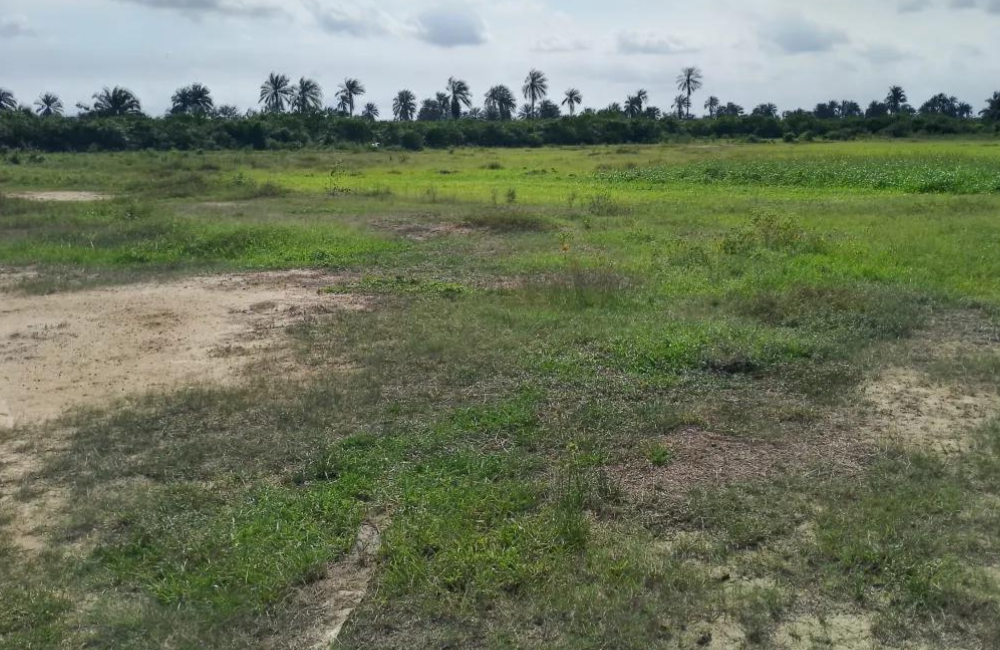
“There are only three sites there. There is no Lot 46. We have lots 43-45,” said the Traditional Prime Minister of Aleto Ngofa community, His Royal Highness Nwosu Ngofa, who had vast knowledge of the project, said.
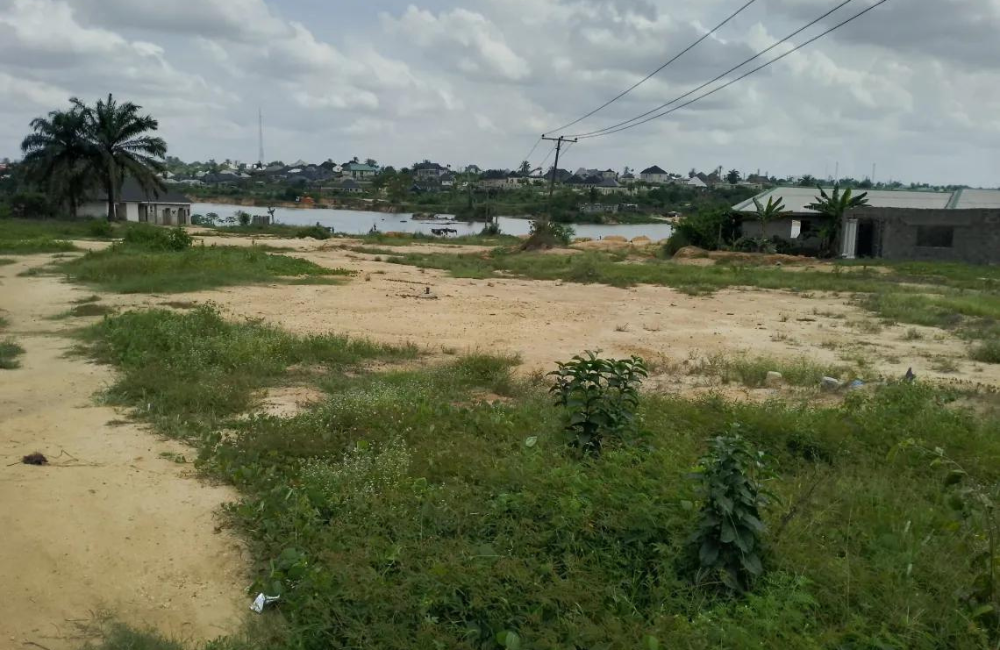
Hyprep claimed that the unexisting Lot 46 site was remediated by a company known as Andelsta Limited. Checks at the Corporate Affairs Commission (CAC)’s register showed that the company was located in highbrow Maitama, Abuja. The CAC keeps records of all the legally existing businesses in Nigeria. Andelsta says on its website that it is in the business of oil spill clean-up, “Stop the Mosquito” project and property development. The reporter gathered that the amount of money allocated by Hyprep for the contract was over N20 million ($43, 478). Curiously, Andelsta did not name any project under the “Projects” section on its website, thereby raising an eyebrow as to whether it had handled remediation projects earlier. Experience is one of the prerequisites for awarding government contracts in Nigeria.
Andelsta Limited was contacted through its official phone number on its website. The recipient of the call, who said he was a web designer at the company, promised to provide an explanation after consulting with the project supervisor.
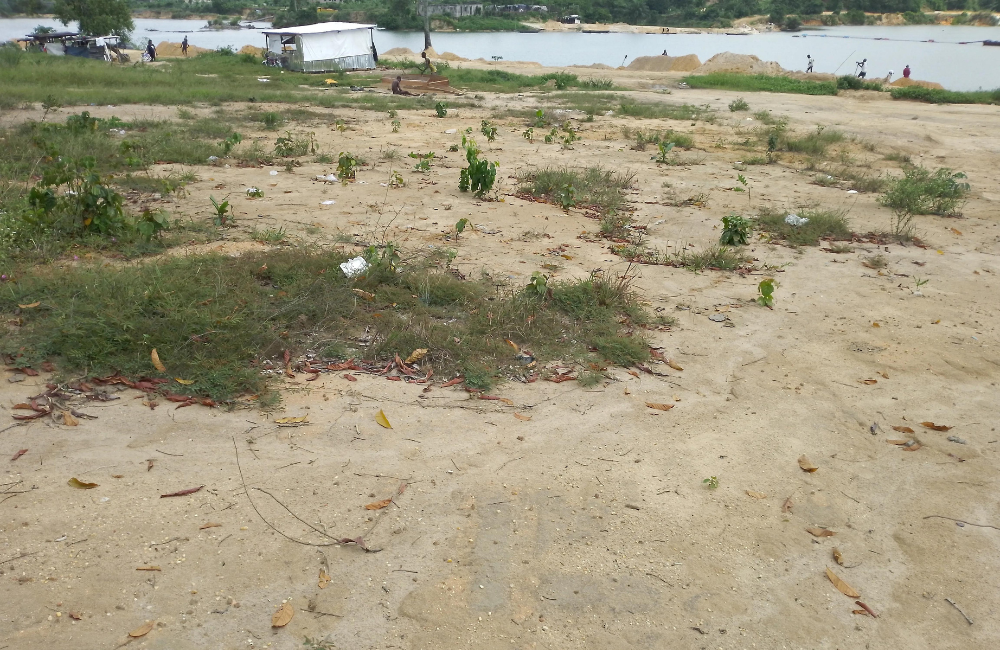
When the reporter contacted the web designer the following day, he responded: “Yes, I was able to speak with one of the project coordinators. My project coordinator said we actually did Lot 46. Every information you need, Hyprep can provide it for you,” the web designer said.
When pressed to provide evidence of executing the contract, he said he was not in a position to do so, asking the reporter to contact Hyprep for further information.
“My project coordinator said you can feel free to publish whatever you find,” he added.
Andelsta Limited’s Chairman, Hon Emmanuel Ibeshi, is a politician and former publicity secretary of Nigeria’s opposition People’s Democratic Party (PDP). He was a gubernatorial aspirant in Cross River State in the lead-up to the 2019 election.
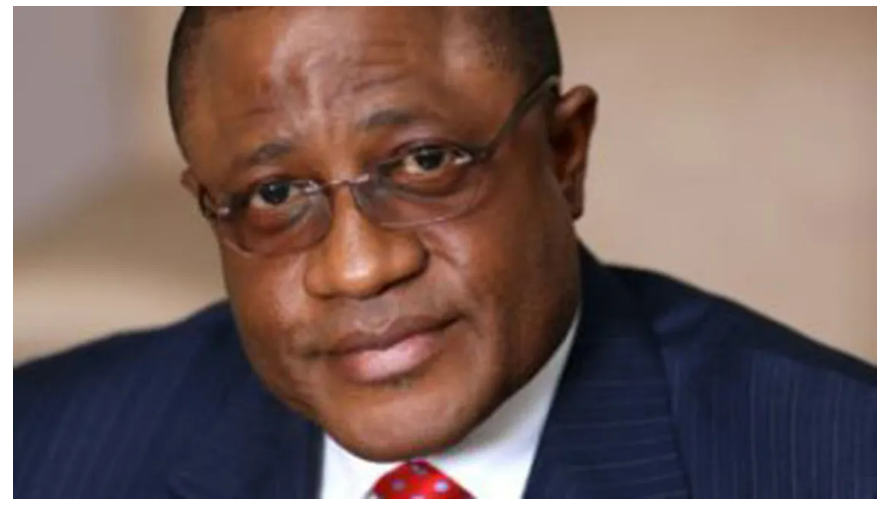
Shoddy work
It was found that work done at Ngofa was shoddy. The lots were full of potholes. Also, the soil was not fertile as efforts had been made to plant in it after remediation but the seeds never germinated. According to former Vice President Osinbajo, the clean-up exercise would restore the environment and livelihoods, but the soil on lots 43-45 said to have been treated was infertile, according to villagers.
One of the villagers, Ms Roseline Deko said, “This place is not fertile. In fact, we tried to plant plantain here, but it did not germinate.”
An environmental group said that soil remediation would always make contaminated soil “usable for agriculture.”
An environmental firm in the business of soil remediation, VLS Environmental Solutions, added: “Soil remediation techniques make the environment cleaner and safer for plant, animal, and human life. They remove or contain harmful contaminants such as polychlorinated biphenyls (PCBs), volatile chemicals, radioactive materials, metals, organic compounds, and pathogens.” However, the case was different at Ngofa lots.
According to Hyprep Herald, the contractor, Otaoilf Services Limited, had completed active remediation on Lot 43 while M/S Harrisco International Limited had finished work on Lot 44. Also, Chavyn Nigeria had completed remediation work on Lot 45.
“What have they completed when the work done by the contractors is substandard? Do they even have expertise on environmental remediation?” the traditional prime minister asked.
An expert, who has been in geological and mining sciences industry for 27 years, Mr Shehu Sani, said, “Once you do soil remediation, you remove contamination and replace the contaminated soil with virgin soil. So, the soil becomes fresh and will be fit for agriculture or other purposes.” However, that is not the case with Ngofa and other remediated sites.
More shoddy work
Other areas said to have been remediated by Hyprep were not fertile.
Nkeleoken in Alode, Eleme Local Government, was an interesting area. It had a gas pipeline linked to Indorama Eleme Petrochemicals Limited, a Port Harcourt-based chemicals firm. It also had a crude oil pipeline, a Shell pipeline, and an NNPC pipeline.
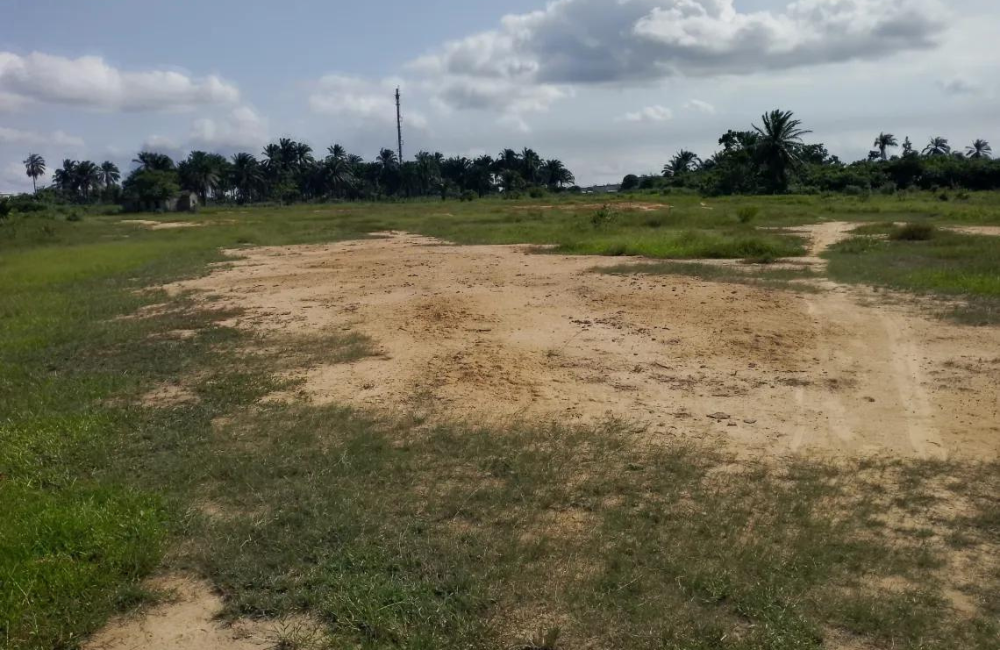
However, like other remediated areas, it looked deserted. Some villagers called it “bush” while others said it was “forest.”
Lot 3 had nearby trees, but the area where the trees grew were not polluted by oil and thus were not remediated, according to villagers. A member of the community, Mr Rasheed Alale Ejoor, said one of the landlords cultivated plantain months after the remediation but it did not germinate.
The reporter found that the lots made up a vast expanse of land which was only good for the pipelines.
For safety reasons, landlords were asked not to build houses on those lots. Farmers also avoided them to avoid waste of effort, Ejoor said.
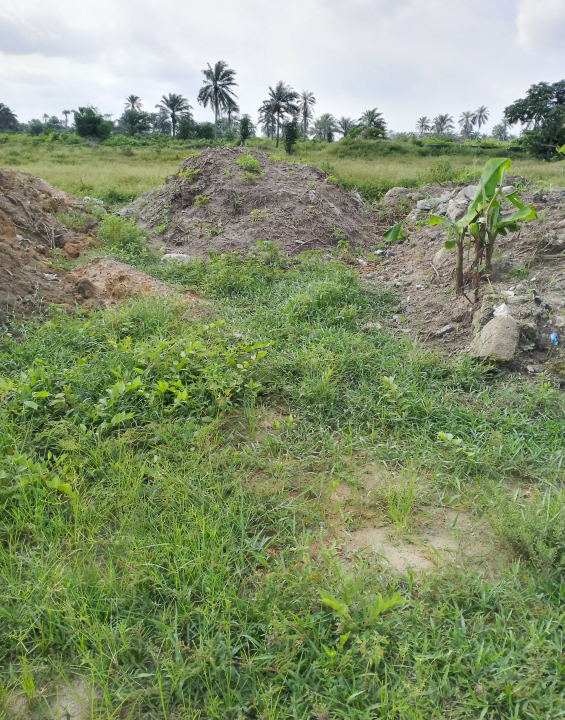
The Youth President, Mr Princewill Osarowa, said work had been done on all the Hyprep locations but refused to comment on quality of the work.
Unexisting company
Investigations further revealed that Hyprep gave a contract for Lot 042 to Kanny Kay Limited – a firm that does not exist in Nigeria. Checks on the CAC portal showed that the company is not a legal entity as the regulator does not have its records. The company also does not have a website.
A lawyer, Mr Samuel Oyigbo, said it was illegal to award a contract to a company that was not registered with the CAC.
According to him, it was equally possible for a company that originally registered with the CAC to cease from being a legal entity.
“You are expected to file your annual returns and pay certain fees over a period of time. If you fail to do so after some time, the CAC will remove you from its register because you are no longer, in law, a going concern,” Oyigbo explained.
“The CAC also considers it a crime when you operate without being registered,” he added.
An analysis showed that Kanny Kay Limited does not have digital presence.
Another lawyer, Dr Odinakachukwu Okeke, explained that any company not registered with the CAC did not have a legal existence and its activities would be deemed criminal.
Despite this, Kanny Kay was allowed to execute a government contract involving more than N20 million.
A criminal lawyer, Ms Sandra Edogbo, noted that the Economic and Financial Crimes Commission (EFCC) had the power to investigate and prosecute the contractor(s).
The EFCC is responsible for investigating financial crimes in Nigeria.
“They can be investigated and sued. It is an offense that can land you in a serious trouble if it is confirmed true,” she added.
Failed promises, incomplete work
The reporter also investigated lots 10-12 situated at Debon Mogha/ Bodo in Gokana Local Government Area. The vast expanse of land was, like others, empty and rough. It was easy to mistake water-logged areas for oil-polluted portions. Lot 12 was owned by Chuku Chare family, which insisted that “the clean-up job was a waste of time.”
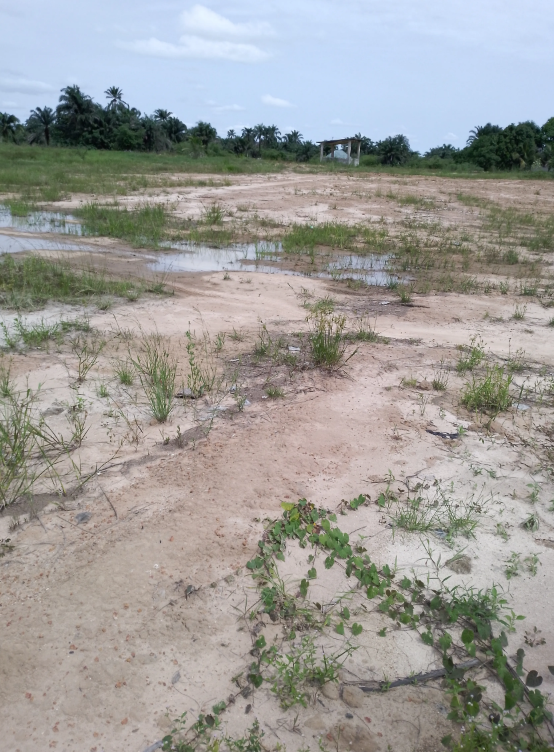
One of the members of the family, Mr Nunaa Elbabariripini, said he was the landlord of Lot 12. He claimed his family was not compensated for the oil spillage and even when the team came for the clean-up, they did a haphazard job and left.
“The promised to return in 2022 for completion of the work but they did not honour their promise,” he said. In spite of this evidence, Hyprep claimed in its PR magazine that it had completed work this site.
He lamented that crops could not germinate in the family’s soil and wondered why “Hyprep can engage in such act.”
My economic trees were destroyed yet they did nothing about them,” he added.
Fact-check proves villager wrong
One of the members of the community, Mr Emmanuel Isidre, said nothing was done to clean the community. He said the villagers might resist any Hyprep contractor coming to “pretend to clean our environment again.”
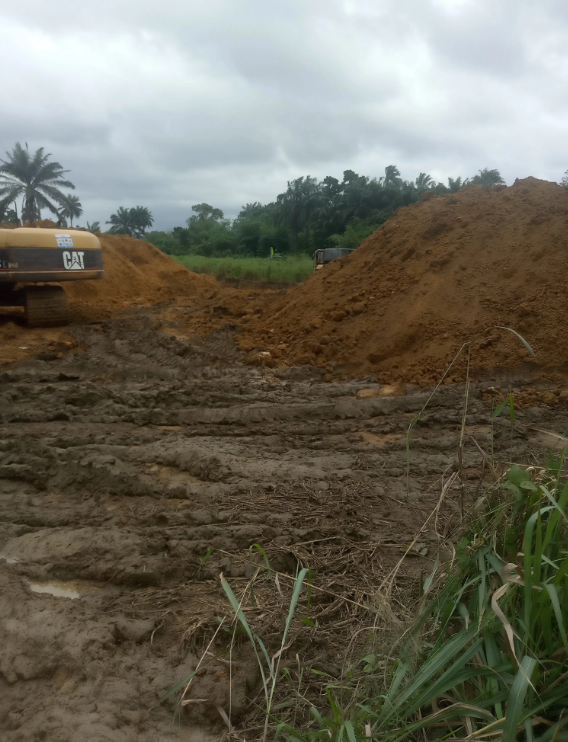
However, Isidre’s claim had no basis as the reporter saw the work on lots 10-12 in 2020. The reporter watched as polluted soil was replaced with fresh soil. One of the project supervisors in 2020 promised to treat the soil, but it was not certain whether this was done.
The reporter also visited Nweekol Zorbuike situated at K-dere in Gokana Local Government Area, where lots 013 and 014 were sited. The reporter can confirm that work was done on the two sites. However, as usual, villagers questioned the quality of work done by Centennial Investment and Development Limited, which remediated Lot 013, and Navante Oil & Gas Limited that remediated Lot 014.
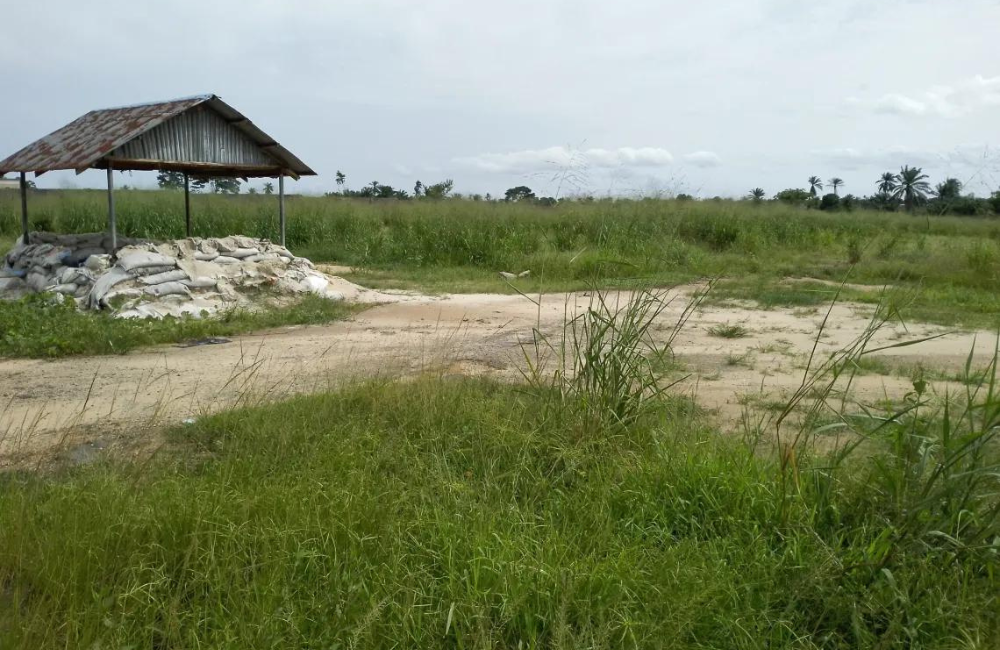
A member of the community, Mr Ikechukwu Adomale, admitted that some work was done on those lots, but noted the community was not satisfied with it. He said people were neither planting nor leveraging the land for economic purposes despite the remediation of the environment which lasted between two and three years.
Another lie
At Well 05 (Lot 16) Korokoro in Tai Local Government Area, the reporter observed from afar that it was still polluted. The area was not easily accessible due to pipelines and dangerous snakes and pythons.
Hyprep claimed that remediation work had been completed at this site, but owners of the land disagreed.
One of the landlords in the area, Chief Deedua Dua Nkpaanee, said his lot had not been remediated.
A member of the Council of Chiefs, Mr Hyacinth Dike, told the reporter that “Hyprep owes us a duty to carry out tests on wells 4-9. The sites are complex. The Niger Delta Development Commission (NDDC) shut down the site because of contamination.” This was contrary to Hyprep’s claim of complete remediation of Well 05.
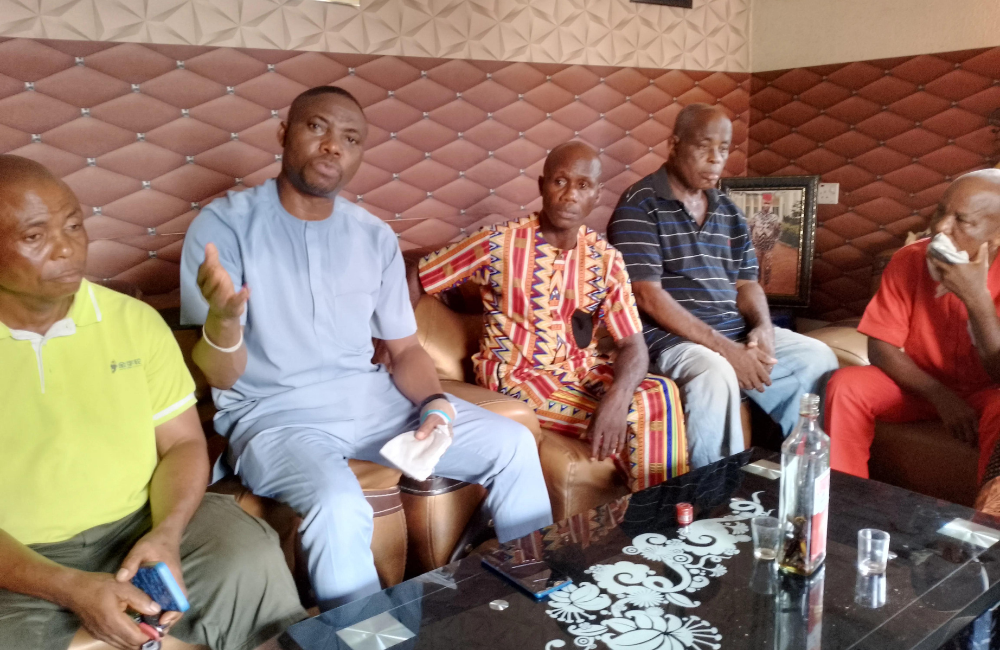
The reporter also visited lots 022 to 026 at B-Dere/ Gio, located in Gokana Local Government Area. The lots were remediated but suffered the same fate as others. As an agrarian community, villagers’ livelihoods were at risk as the soil was not fertile, one of the villagers said.
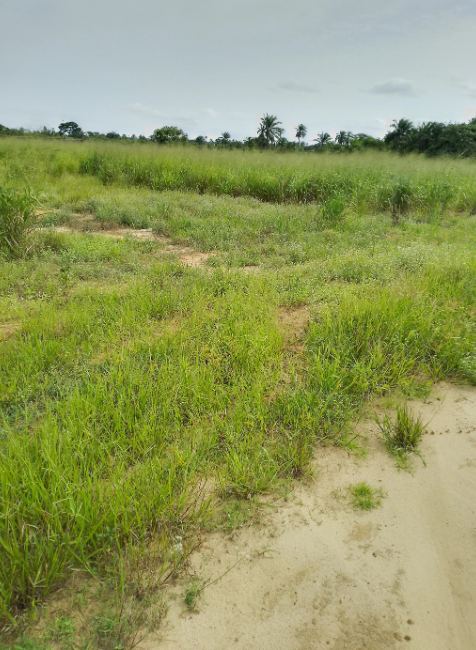
Hence of all the 21 sites visited, one lot did not exist. One site was remediated by an illegal firm. Landowners contradicted Hyprep’s claim on one of the lots. However, work was done on others but residents said they could not grow their crops in the soil – showing that remediation work had not been completed, contrary to Hyprep’s claim.
More non-existing firms
One of the firms that received a contract from Hyprep is named Basic Nigeria Limited. The firm was awarded a contract to clean up Lot 2 located at Oboola Ebubu in Eleme Local Government Area. The company does not exist in the CAC portal, though its website says it is involved in remediation services. The closest firm found in the CAC portal is named Basic Data Technologies Nigeria, a data science firm located in Gombe State, North-East Nigeria.
Another non-existing firm which was allowed to execute the contract in violation of the Nigerian laws is Avandale Supplies and Services Limited, whose records are also not in the CAC portal. Hyprep awarded a contract to this company to clean Lot 007 located at Nkeleoken, Alode Eleme.
Next is Tip Tree Nigeria Limited, which was given a contract for the remediation of Lot 017 at Bara Akpor, Botem, in Tai Local Government Area. NG-Check, which keeps records of all Nigerian companies, recognises only Tip Tree Intertrade Nigeria Limited, which is in international business. The company was registered on May 12, 1993. It does not have digital presence.
Yet another company that participated in the clean-up exercise in violation of Nigerian laws is Louizioni Ferreti Enterprises Limited which cleaned up Lot 018 at Buemene Korokoro Well 09 in Tai Local Government Area. It has a website which does not specify its business. The website describes it as a general contractor. However, the pictures of a pencil, measuring tape, and nails on the site show that it is in the wood/carpentry industry – not environmental remediation.
Inactive companies
Dataphyte conducted beneficial ownership analyses of the legally existing contractors to determine their status, ownership, and the type of business they registered to do.
One of the companies examined is Environ Consult & Remedial Services, which carried out remediation work on Lot 049 located at Okuluebu Ogale in Eleme Local Government Area. The reporter found that its status in the CAC is inactive. Legal experts associate a company’s inactive status to an inability to file annual returns.
According to the CAC, “The indicated status of a registered entity on the Public Search portal as ‘active’ or ‘inactive’ is a function of the entity’s annual returns filing. Where a registered entity has not filed its annual returns up to date, the status of the entity is indicated as ‘inactive.’ When a registered entity has filed its annual returns up to date, the status of the entity is indicated as ‘active.”
Being an inactive company means the firm is yet to pay necessary legal taxes/fees at the CAC over a given period of time.
Awarding government contracts to inactive companies contravenes the Public Procurement Act 2007. The Act states that “a bidder may have its bid or tender excluded if the bidder is in arrears regarding payment of due taxes, charges, pensions or social insurance contributions unless such bidders have obtained a lawful permit in respect to allowance, the difference of such outstanding payments or payment thereof in installments.”
Barrister Oyigbo, earlier quoted, said it was improper in law for companies to be deemed inactive by the CAC.
“It is a matter of non-compliance by the companies. Yes, the companies can regularise and pay the necessary fees. However, failure to file annual returns is wrong. Somebody can take it up and inform the court that you are not fit to carry out a government contract. So, it is really wrong for such a company to do government contracts,” he added.
A procurement expert, whose name was not mentioned because of her position in the government, said it was obvious that Hyprep did not do its due diligence before awarding the remediation contracts to some companies.
“I feel that there might have been some political considerations before picking the companies. Ordinarily, Hyprep should have looked through the status of the firms, their tax complaince, previous work experience, among others, before doling out money to any of the contractors. But it is obvious that the contracts went the normal Nigerian way,” the public procurement expert said.
She noted that it was the usual practice for those giving out government contracts.
For Environ Consult & Remedial Services, its principal business activity is unspecified on the CAC portal, though its website says it provides soil and water treatment.
Similarly, the status of Environmental Resources Managers Limited, which remediated Lot 006 at Alode Eleme, is inactive. Erathpro is also another firm whose status is inactive. It registered as a firm rendering “management consultancy services” yet it remediated Lot 005 at Alode in Eleme Local Government Area.
Centennial Investment and Development Limited handled the contract for Lot 013 located at Nweekol Zorbuike K-Dere in Gokana Local Government Area. However, its status on CAC portal is inactive. Subadom Global Resources Limited handled Lot 025 at B-Dere/Gio in Gokana Local Government Area. Like many others, its status is inactive, and the principal business activity is unspecified.
The status of another contracting firm, Earthquest International Limited, is inactive and its business interest is unspecified on the portal. The company handled Lot 026 at B-Dere/Gio in Gokona Local Government.
A company named Marm Consulting Sevices Limited is said to have cleaned up Lot 027 situated at Bara Alue, Kira, Tai Local Government Area, but its status is inactive. Also, the status of Warri-based Weafri Well Services, which undertook the contract for Lot 029 at Aabue, Korokoro, in Tai Local Government Area, is inactive. Principal business activity registered with the CAC is “engineering services” which does not include soil remediation.
The Benin City-based Elizax Bleet Nigeria Limited remediated Lot 030 at Aabue, Korokoro Flowstation, in Tai Local Government, but its status is inactive. It registered as an oil and gas services firm.
Port Harcourt-based Mosito Environmental Limited handled Lot 032 located at B-Dere/Gio in Gokana LGA. Its status, however, is inactive and the principal business activity is unspecified.
Montego Upstream Services Limited, which carried out remediation work on Lot 052 at Okuluebu Ogale in Eleme Local Government Area, registered with the CAC as an oil and gas servicing company on November 26, 2010. Its website, however, says it offers services in natural resources exploration and production, energy services, renewables, logistics, and agriculture. The status of the company is, nevertheless, inactive.
Klartek Nigeria Limited, which handled Lot 050 located at Ogale, Eleme, has no website. It was listed as one of the successful electricity metres service providers in Nigeria. It was also listed as one of the accredited consultants for the Lagos State Environmental Protection Agency that would conduct environmental studies.
A businesswoman, Ms Janeth Kola-Awe, told Dataphyte that “many individuals register several companies with the CAC. Some of those companies are simply used to seek government contracts. Once those contracts do not come over a period of time, the companies will not be able to file returns and will become inactive.”
An e-mail sent to Hyprep asking it to explain the process of selecting the companies was not replied to.
No previous remediation experience
Oilserv Limited remediated Lot 031 located at B-Dere in Gokana Local Government Area. However, it did not mention this work as one of its recent or completed projects on the website. The company is a major contractor for Shell and the NNPC. More than 100 projects mentioned on its website did not include any previous environmental/soil remediation experience.
Similarly, Slot Nigeria, which handled Lot 048 at Okuluebu Ogale, Eleme Local Government Area, did not name this work on its website as one of the 23 projects it had executed. All but one of the 23 projects were contracts from Shell. None of the contracts showed previous remediation experience.
An email was sent to Shell to confirm if it was involved in the selection of contractors. However, its Media Relations Manager, Ms Abimbola Essien-Nelson, did not answer the mail despite acknowledging it earlier.
Scam?
“Ninety-nine percent of Ogoni people believe that this clean-up is a scam,” said the President of a pressure group, Ogoni Peoples Assembly, Pastor William Probel.
“This is because Hyprep and the Federal Government have not been able to gain the confidence of the people,” he added.
Hyprep says no scam
Hyprep spokesman, Mr Kpobari Mafo, however, denied that fraudulent, fictitious or illegal companies got contracts to execute various remedial projects.
“Everybody has a right to say what they like. It is not true that the clean-up is substandard. This is not a phone matter because I would like to take you to the sites,” he said in a telephone interview.
When the reporter reminded him that he had visited most of the sites, he insisted that Hyprep would be happy to take him around to see the projects.
“It is better you come so that we will sort out those points,” he added.
However, the reporter declined his request.
The men behind Ogoni project
Dr Ferdinand Dumbari Giadom was Hyprep’s coordinator when the names of the contractors were published in July 2022. Giadom, a lecturer at the University of Port Harcourt, held sway for 14 months before he was sacked earlier in the month by former President Muhammadu Buhari.
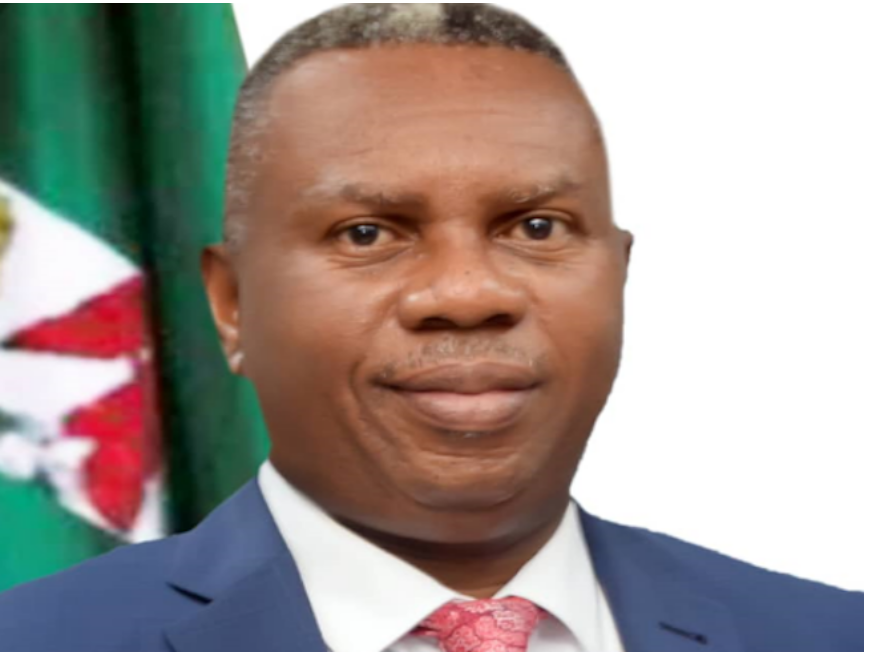
He was replaced by Professor Nenibarini Zabbey, an expert on hydrobiology. Before Giadom was appointed, there had been Dr Marvin Dekil, who claimed in July 2020 that the clean-up of less polluted sites was 70 percent complete at that time.
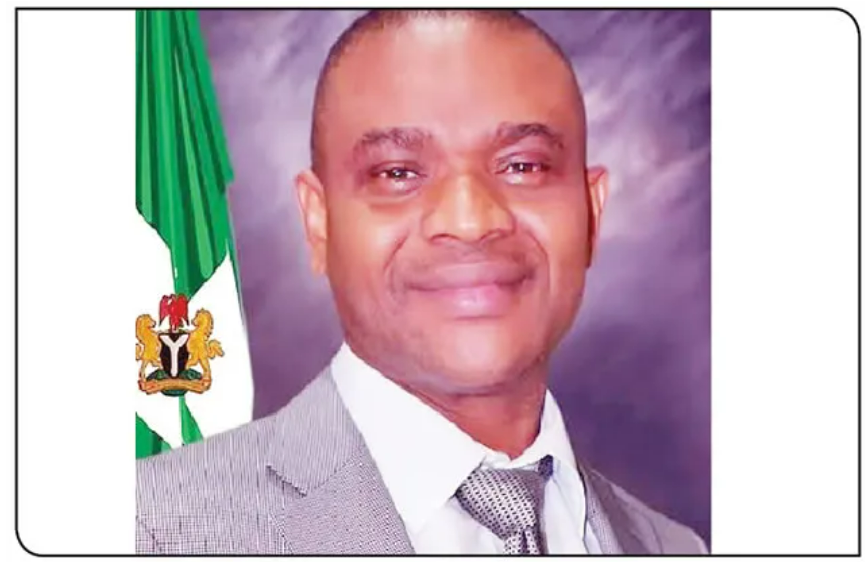
All the previous and present coordinators of the project are from Ogoni. However, most of the leaders in the four local governments in Ogoni criticised their tenures, saying that “they failed Ogoni people.”
Nigeria has had three ministers of environment since this project began in 2016. Amina Mohammed, Ibrahim Jubril, and Mohammed Abdullahi are some of the ministers that have superintended the Ogoni clean-up project.
“All they have done is to keep changing ministers. This has worsened the fate of the project,” said Probel.
Ogoni










Comments 1